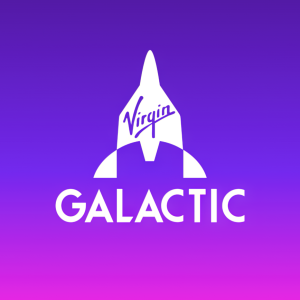Virgin Galactic Completes 12th Successful Spaceflight
‘Galactic 07’ Carries Five Research Payloads During Company’s Seventh Research Mission
After Today’s Final Commercial Flight of VSS Unity, Momentum Builds for Production of Delta Class Spaceships
Onboard ‘Galactic 07’:
- Astronaut 027 – Tuva Cihangir Atasever, Turkish Space Agency (TUA) astronaut and Axiom Mission 3 (Ax-3) Backup Mission Specialist
-
Astronaut 028 – Anand “Andy” Harish Sadhwani,
California, USA -
Astronaut 029 – Irving Izchak Pergament,
New York, USA -
Astronaut 030 – Giorgio Manenti,
Italy
‘Galactic 07’ Flight Facts
- Take-off Time: 8:31 am MT
- Altitude at Release: 44,562 ft
- Apogee: 54.4 miles
- Top Speed: Mach 2.96
- Landing Time: 9:41 am MT
“Watching our pioneering spaceship Unity return from space on its final commercial flight was a breathtaking and proud moment as we celebrate the ship’s unprecedented achievements in human spaceflight and build momentum for the rollout of our first Delta Class ships in 2026,” said Michael Colglazier, CEO of Virgin Galactic.
On today’s flight, Atasever flew with three human-tended experiments, including custom headgear with brain activity monitoring sensors to collect physiological data related to human spaceflight; a dosimeter; and two commercially available insulin pens to examine the ability to administer accurate insulin doses in microgravity. He also participated in four investigations carried out by Turkish researchers on the ground to understand physiological changes during suborbital spaceflight.
“I am beyond grateful to have represented my country on ‘Galactic 07’ and conduct groundbreaking research that will impact future space missions,” said Atasever. “The successful completion of Ax-3 and now ‘Galactic 07’ is just the beginning of Türkiye’s space endeavors. May our people at home continue to be inspired and dream beyond the stars.”
‘Galactic 07’ also flew two autonomous rack-mounted payloads supported by NASA’s Flight Opportunities program: a Purdue University experiment to study propellant slosh for spacecraft propulsion applications and a University of
The flight was Virgin Galactic’s seventh spaceflight carrying microgravity and space-based research, following last year’s research missions, ‘Galactic 05’ with
Read the Virgin Galactic research overview here, and learn more about the ‘Galactic 07’ payloads here.
Building on VSS Unity’s unrivaled record in commercial human spaceflight (32 total flights, including 12 to space), the company is now producing its fourth-generation and most advanced spaceships, the Delta Class, expected to enter commercial service in 2026.
Press materials may be accessed via the Virgin Galactic Newsroom at https://press.virgingalactic.com, including:
- Full catalog of hi-res imagery and b-roll from all flights
- Photos and video from ‘Galactic 07’ mission
- Pilot bios
- Astronaut bios available here: https://www.virgingalactic.com/virgin-galactic-astronauts
About Virgin Galactic
Virgin Galactic is an aerospace and space travel company, pioneering human spaceflight for private individuals and researchers with its advanced air and space vehicles. Scale and profitability are driven by next-generation vehicles capable of bringing humans to space at an unprecedented frequency with an industry-leading cost structure. You can find more information at https://www.virgingalactic.com/.
Forward-Looking Statements
This press release contains forward-looking statements within the meaning of the Private Securities Litigation Reform Act of 1995. We intend such forward-looking statements to be covered by the safe harbor provisions for forward-looking statements contained in Section 27A of the Securities Act of 1933, as amended (the “Securities Act”) and Section 21E of the Securities Exchange Act of 1934, as amended (the “Exchange Act”). All statements contained in this press release other than statements of historical fact, including, without limitation, statements regarding our spaceflight systems, the development of our Delta class spaceships and proposed timeline for commercial service using such spaceships, are forward-looking statements. The words “believe,” “may,” “will,” “estimate,” “potential,” “continue,” “anticipate,” “intend,” “expect,” “strategy,” “future,” “could,” “would,” “project,” “plan,” “target,” and similar expressions are intended to identify forward-looking statements, though not all forward-looking statements use these words or expressions. These statements are neither promises nor guarantees, but involve known and unknown risks, uncertainties and other important factors that may cause our actual results, performance or achievements to be materially different from any future results, performance or achievements expressed or implied by the forward-looking statements, including but not limited to any delay in future commercial flights of our spaceflight fleet, our ability to successfully develop and test our Delta fleet and the time and costs associated with doing so, the safety of our spaceflight systems, our expected capital requirements and the availability of additional financing, and the other factors, risks and uncertainties included in our Annual Report on Form 10-K for the fiscal year ended December 31, 2023, as such factors may be updated from time to time in our other filings with the Securities and Exchange Commission (the "SEC"), accessible on the SEC’s website at www.sec.gov and the Investor Relations section of our website at www.virgingalactic.com, which could cause our actual results to differ materially from those indicated by the forward-looking statements made in this press release. Any such forward-looking statements represent management’s estimates as of the date of this press release. While we may elect to update such forward-looking statements at some point in the future, we disclaim any obligation to do so, even if subsequent events cause our views to change.
Source: Virgin Galactic Holdings, Inc.
View source version on businesswire.com: https://www.businesswire.com/news/home/20240608342150/en/
For media inquiries:
Aleanna Crane – Vice President, Communications
news@virgingalactic.com
575.800.4422
Jeff Michael – Communications
news@virgingalactic.com
661.754.4300
For investor inquiries:
Eric Cerny – Vice President, Investor Relations
vg-ir@virgingalactic.com
949.774.7637
Source: Virgin Galactic Holdings, Inc.








